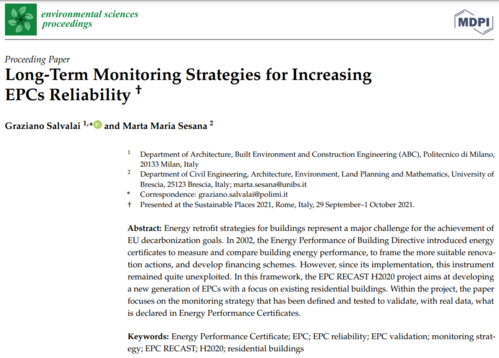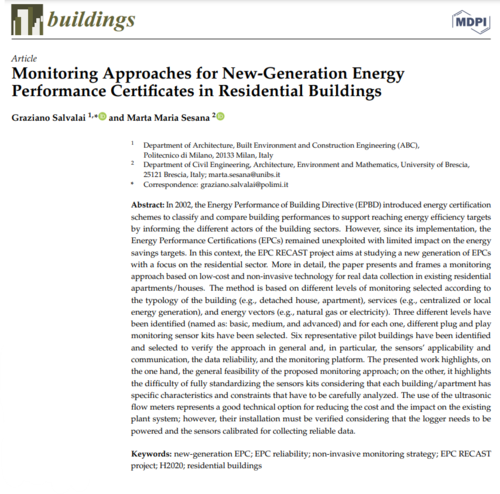PoliMi, as EPC RECAST team member, has recently published 2 articles about EPC RECAST’s monitoring strategies and approaches for the residential sector related to Energy Performance Assessment and Certification processes.

Long-Term Monitoring Strategies for Increasing EPCs Reliability (MDPI ink, PDF)
This publication has been presented at Sustainable Places 2021, Rome, Italy (29 September – 1 October 2021) and is included in the Proceedings of The 9th Annual Edition of Sustainable Places (SP 2021). The EPC RECAST H2020 project aims at developing a new generation of EPCs with a focus on existing residential buildings. Within the project, the paper focuses on the monitoring strategy that has been defined and tested to validate, with real data, what is declared in Energy Performance Certificates.

Monitoring Approaches for New-Generation Energy Performance Certificates in Residential Buildings (MDPI link, PDF)
This publication was included in Buildings, an international, scientific, peer-reviewed, open access journal on building science, building engineering and architecture published monthly online by MDPI. The EPC RECAST H2020 project aims at studying a new generation of EPCs with a focus on the residential sector. More in detail, the paper presents and frames a monitoring approach based on low-cost and non-invasive technology for real data collection in existing residential apartments/houses. The method is based on different levels of monitoring selected according to the typology of the building (e.g., detached house, apartment), services (e.g., centralized or local energy generation), and energy vectors (e.g., natural gas or electricity). Three different levels have been identified (named as: basic, medium, and advanced) and for each one, different plug and play monitoring sensor kits have been selected.

